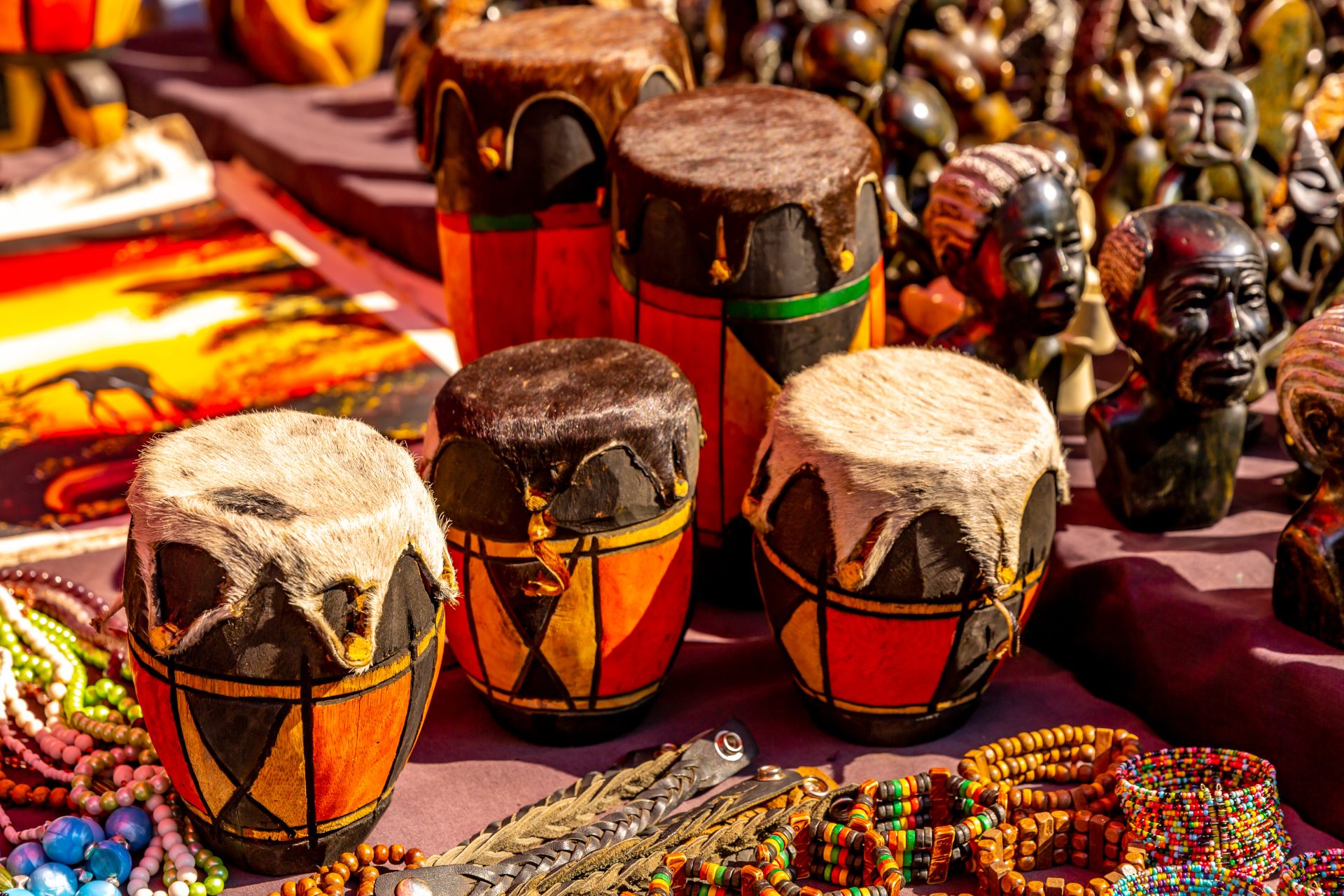Culture & Traditions
Experience South Africa's rich cultural tapestry and vibrant traditions.
From the Zulu nation's rich traditions to the Xhosa's deep-rooted customs, to the powerful harmonies of a local choir, or the storytelling dance of the San people, every ethnic group contributes to South Africa's unique cultural identity.
The Rainbow Nation is a place where different cultures not only coexist, but flourish together. Museums across the country, like the Apartheid Museum in Johannesburg, provide a profound look into the country's challenging past and its journey to democracy.
Festivals are a fabulous addition to any South Africa vacation, showcasing the country’s artistic diversity, with everything from indigenous art forms to contemporary music. The National Arts Festival in Makhanda is one such event that gathers artists and performers from all over the continent.
South Africa's constitution recognizes 12 official languages, illustrating the nation's linguistic richness. Literature is another avenue where South Africa excels, with Nobel laureates like Nadine Gordimer and J.M. Coetzee among its noted storytellers.
Music is the heartbeat of South African culture. Genres like Kwaito, Afrikaans rock, and Marabi capture the spirit of the nation. Traditional dances, often accompanied by rhythmic drumming, remain a vital part of ceremonies and social gatherings.
What is the visiting etiquette in South Africa?
On your South Africa trip, always remove your shoes when entering someone’s home. A warm handshake with eye contact is a typical greeting, though men may kiss a woman they know well on the cheek, while women and younger South Africans will likely hug. Punctuality varies across the country, with Cape Town being distinctly more laid back about time than say, Johannesburg. One thing that’s common across the country (sadly) is petty crime, so locals are used to looking out for each other, and tourists. This includes watching each other’s valuables at a beach or restaurant, so don’t be afraid to ask.
Finally, you must respect the ethnic and social diversity of South Africa. While the pains of Apartheid are well documented, South Africa’s social mosaic extends well beyond this period, with an all inclusive diversity that has influenced everything from food to slang. Embrace it, take it slow, ask about local neighbourhood tours, and be willing to learn. Ask your travel guide to teach you a few South African terms to endear you to locals and make you feel more at home!
What is South Africa best known for?
The South Africa safari is on par with any in the world. Kruger is the country’s star national park, with Hluhluwe-iMfolozi a close second. Private reserves offer an even more exclusive wildlife experience. But South Africa also offers world-renowned wines, beautiful coastal cities including Cape Town and Durban, an incredible range of wildflowers, diverse landscapes, and vacation packages to wow even the most seasoned traveller.
What are some South African traditions?
Look for South Africa tours that include the braai, or South African barbecue. It’s as much about socialization as it is food, so know the ins and outs before turning up to one. Beyond this, song and dance are hugely important across South Africa’s many cultures. Traditional indigenous beliefs are often preserved and shared through song and dance.
The Xhosa and San people in particular have specific rituals around coming of age and learning to hunt that are still practiced today. South Africa’s immigrant cultures, particularly the Malay, have brought their own traditions to the country, influencing both its cuisine and daily life.
What are South Africans like socially?
South Africans tend to be gregarious and social, enjoying outdoor gatherings and sharing a drink. Sport never fails to bring people together, and you should be aware of the best time to visit and who’s playing before arriving at any sports-based social gathering. Conversation tends to be direct and expressive, which can catch first-timers off-guard at first, but your South African companion isn’t trying to intimidate or be rude. In fact, South Africans are regarded as some of the friendliest, most welcoming people in the world. They just like to get to the point, particularly when conducting business.
What languages do South Africans speak?
Of South Africa’s 12 official languages, the most common first language is Zulu (23%), followed by Xhosa (16%), Afrikaans (14%) and English (9.6%). English is the lingua franca, used in government, the media, and tourism, while Ndebele, Pedi, Sotho, Swati, Tsonga, Tswana, Venda, and South African Sign Language round out the 12. Ask your travel agency what predominant languages are likely to be spoken on your specific South Africa trip or cruise, but it’s most likely to be English.
Travel Stories
Get inspired about Your Trip to South Africa
Unlock more by subscribing to our newsletter.
With our newsletter, you’ll get access to regular communications that inspire you and help you explore the world your way.



